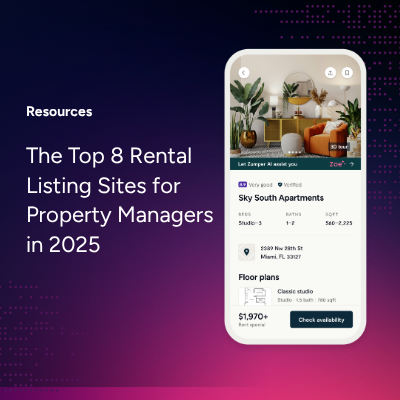
If you’re a landlord considering setting up an LLC, it’s important to understand the process and whether it’s ultimately worth it for you and your rental property. Because the answer is different for every landlord, it’s important to evaluate your personal situation to make the most informed decision. Learn more about the benefits and cons of creating an LLC for a rental property, when and how to create one, and the costs you may incur.
Benefits of Creating an LLC for a Rental Property
If you’re considering the creation of an LLC, you need to know the advantages this can create for you both now and in the future. Understanding the benefits can help you determine if this is a wise path to follow as a landlord. Here are some benefits of creating an LLC for a rental property:
- Limited personal liabilities: Creating an LLC for your rental property can help protect your personal assets. For example, if someone sues you, the LLC’s assets — your rental property — is at stake as opposed to other things you own.
- Pass-through taxation: If you create an LLC, its income flows through to your own tax return. As a business owner, this is beneficial because it lowers the amount of money taken out of your income regarding taxes.
- Separates your rental properties: If you face liability claims, having an LLC can help isolate your rental properties from each other. For example, if you have an LLC and someone sues you regarding one of your rentals, it can’t affect your other properties.
Cons of Setting Up an LLC
Although setting up an LLC can be beneficial, it also comes with several drawbacks. For example, if you want to create an LLC for your rental property, you need to file additional paperwork, which can be time-consuming. In addition, your lender may not approve, it may be harder for you to pay your mortgage, you may face a higher interest rate, and you face additional costs in the process.
When to Create an LLC
If you want to create an LLC, it’s important to do it at the right time. Even though you can create one before or after you purchase a property, it’s ultimately best to create an LLC before the point of sale. If you don’t, you’ll face various obstacles including:
- Your mortgage lender may be apprehensive and they may increase your interest rate, charge you a fee, or close the loan altogether.
- You need to let your tenants know about the new ownership.
- You may have to pay new taxes.
- You need to transfer the deed.
Costs of Setting Up an LLC
The cost of creating an LLC varies by state. Here are some general ranges for what it can cost you to set one up for a rental property:
- State filing fees: $40-500
- Publication fees: $40-2,000
- Name reservation fees: $10-28
It’s important to note that not all states require you to publish a statement regarding the formation of your LLC. Therefore, it’s possible that you can forgo the publication fee depending on where your business exists. In addition, if it’s in Alabama, you’re required to pay a name reservation fee. This is optional in other states. If you’re required to create an operating agreement, this can cost you around $0-1,000. Other costs you may face include a franchise tax, a report fee for your annual or biennial report, and annual, ongoing costs. These all depend on your state.
How to Create an LLC
If you’re interested in starting an LLC for one or more of your rental properties, it’s important to follow a certain set of steps. Doing so can help set your business up for success. Here are the steps for creating an LLC for your rental property:
1. Contact Your lender
Before you create your LLC, it’s important to contact your lender if your rental property is mortgaged. This is because they may not want to transfer the mortgage to your LLC, your interest rate may increase, or you may have to pay additional fees.
2. Speak with a Certified Public Accountant (CPA) or an Attorney
Consulting with a CPA or attorney can help you determine if forming an LLC is a smart idea. These professionals can offer you guidance based on your personal circumstances and help you answer various questions such as your future involvement with your LLC, the hiring of employees, and more. Ultimately, these individuals can evaluate your business and provide you with the best steps to take moving forward.
3. Create a Name
Make sure the business name you create is unique and makes the most sense. You should also verify that the name isn’t already in use by another business. Do this by checking the business name directory on your state’s Secretary of State’s website.
4. Draft the Paperwork
Whether or not it’s a requirement in your state, drawing up the Articles of Organization and an Operating Agreement can help you determine your LLC’s structure and give you a framework to work off of moving forward. For example, you can outline the steps to take when adding a new member or transferring property into your LLC later on with these documents.
5. Register Your LLC
To conduct business in the state where your business exists, you need to fill out forms from your state’s Secretary of State. Depending on your state, you may do this online. In addition, you’re required to pay a filing fee and your state may require you to pay an annual fee to maintain registration.
6. Obtain an Employer Identification Number (EIN)
To open bank accounts and pay taxes, you need to get an EIN from the Internal Revenue Service. You can do this online for no charge. When you’re ready to open bank accounts, consider separating your operating funds and rent payments for better organization.
Once you understand how to set up an LLC, the better equipped you are to decide if this is something you want to do. Ultimately, it’s best to weigh the pros and cons and assess if your unique situation can benefit from this change.



